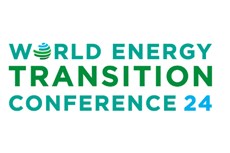GE publishes report on decarbonisation
Published by Sarah Smith,
Assistant Editor
Hydrocarbon Engineering,
Building on its commitment to carbon neutrality in its operations by 2030 and announced intention to exit the new-build coal power market, GE has shared its position that the accelerated and strategic deployment of both renewable energy and gas power can make substantial progress in combatting climate change in the near-term, while securing a path to a lower-carbon emitting world in the future.
In a newly published paper newly published paper expanding on its decades-long commitment to decarbonisation titled "Accelerated Growth of Renewables and Gas Power Can Rapidly Change the Trajectory on Climate Change," GE said neither power source will be sufficient alone; however, deployed in tandem, they can provide decarbonisation at the pace and scale needed to help achieve substantial climate goals.
In addition, the paper outlines multiple technical pathways for gas power to achieve a lower-carbon generating footprint through the use of low and zero-carbon fuels — including hydrogen — as well as carbon capture utilisation and sequestration (CCUS) technologies.
To help meet urgent climate goals while at the same time increasing power demand across the globe, the report details the merits of gas-fired generation as a complement to support and accelerate renewable energy penetration:
- Gas is reliable, inexpensive, and doesn’t require a lot of land; the ideal complement to renewable energy.
- While renewable power is variable, gas power is dispatchable, dependable and flexible, available as much as 90% of the time.
- The near-term impact of coal-to-gas switching represents a fast and effective win for emissions reduction in many regions around the world. For example, since 2007, power sector CO2 emissions in the US have dropped by about one third while total electricity generation has remained fairly constant. The CO2 emissions reduction attributed to coal-to-gas switching was greater than that from any other fuel source.
The position paper provides technology and market overviews of several sources of power generation including renewables, gas, coal and nuclear as well as technology breakthroughs needed to make battery storage more cost-competitive.
GE Renewable Energy is continuing to invest in technology innovations that are driving down the cost of renewable energy, a key driver of the industry’s continued growth as noted in the whitepaper. The company recently announced that its Haliade-X offshore wind turbine will be uprated to 13 MW as part of the first two phases of the Dogger Bank offshore wind farm in the UK.
GE’s gas turbine portfolio is built on an 80-year gas turbine technology heritage that is unparalleled in the power generation industry and GE’s HA gas has established several industry-firsts and secured two world records. GE also offers the industry’s most experienced gas turbine fleet in hydrogen and similar low-BTU fuel operations, with more than six million operating hours in decades of use across more than 75 gas turbines. GE continues to invest in research and development into hydrogen and carbon capture technologies in close partnership with GE’s Global Research Center — to help further advance a low or near-zero carbon footprint for gas power.
GE’s Gas Power business has also signed several major customer strategic decarbonisation programmes including agreements with Uniper and the Long Ridge Energy Center in 2020. GE is pursuing multiple decarbonisation pilot projects with customers throughout 2021 and 2022 for both hydrogen-fuelled projects and carbon capture and sequestration technologies. Finally, GE Gas Power has announced it has joined the Carbon Capture Coalition, a nonpartisan collaboration of more than 80 businesses and organisations building federal policy support for economy-wide deployment of carbon capture, transport, use, removal and storage.
Read the article online at: https://www.hydrocarbonengineering.com/special-reports/15122020/ge-publishes-report-on-decarbonisation/
You might also like
Viridi Energy signs 20-year agreement with Énergir
Viridi Energy, a renewable natural gas (RNG) platform, has signed a 20-year offtake agreement with Énergir, L.P.


